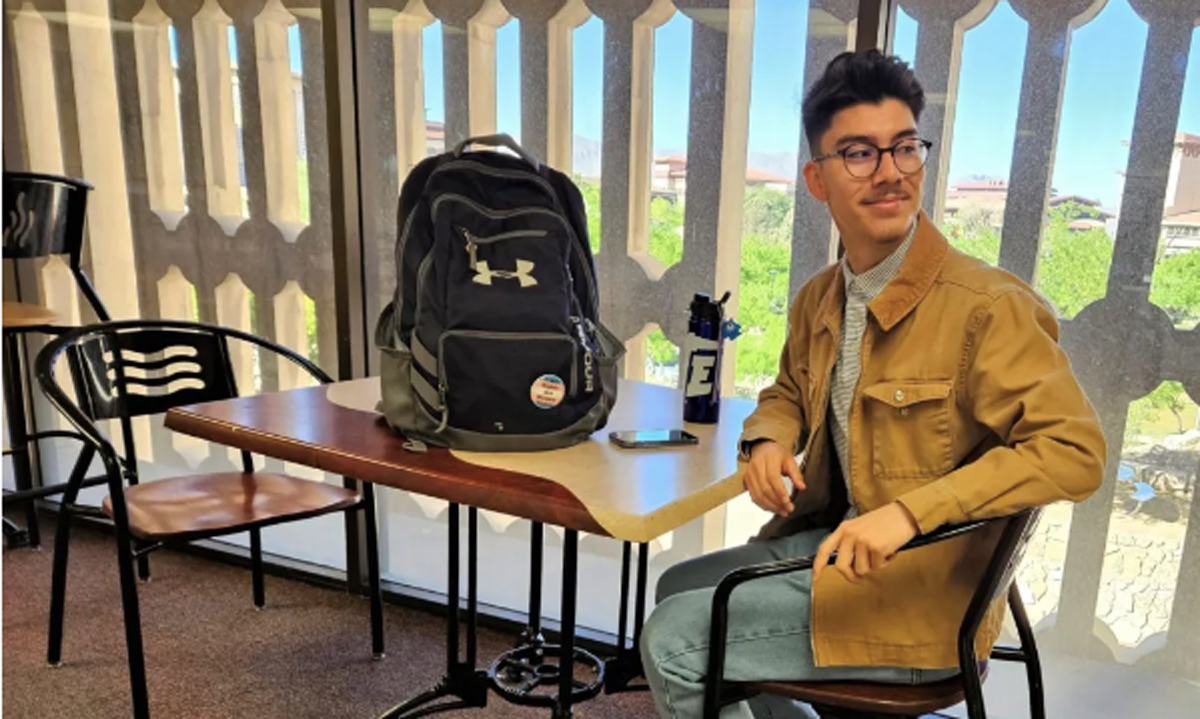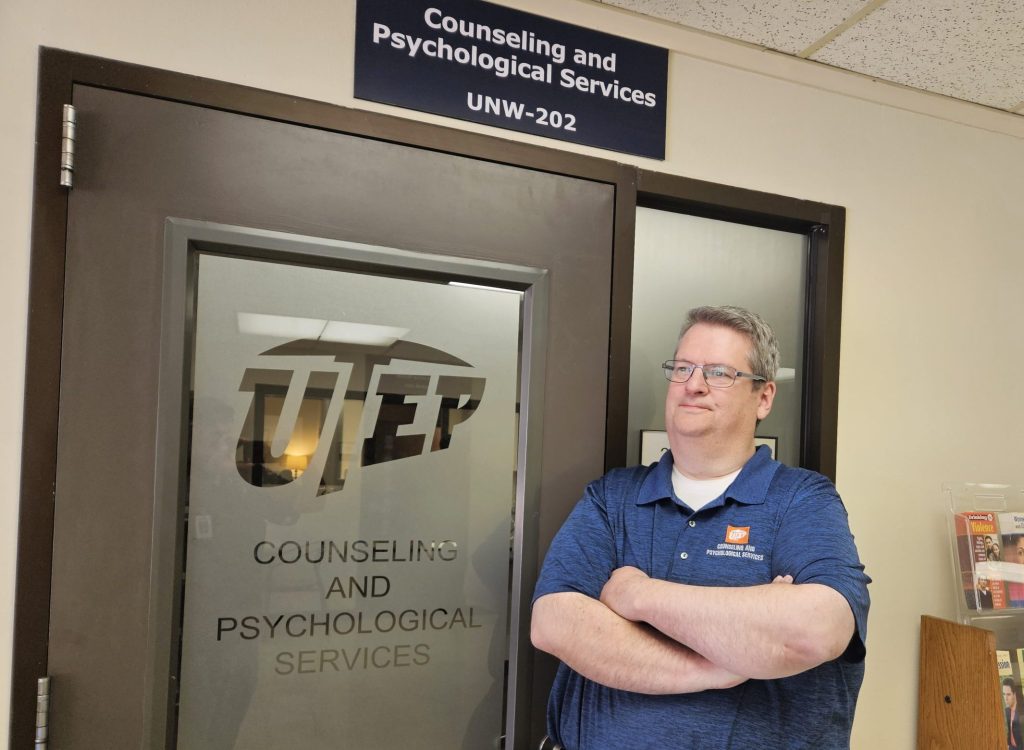Why Sleep Is Key for Student Learning — and Earning A’s on Those Final Exams
Research shows that every lost hour of nightly sleep equates to a 0.07 drop in end-of-term GPA.

Get stories like these delivered straight to your inbox. Sign up for The 74 Newsletter
Darek Perez knows the benefits of a good night’s sleep. The freshman psychology major at the University of Texas at El Paso researched the topic and presented the results during his “Introduction to Psychology” course last fall, but knowing the benefits of sleep and doing are two different things.
Perez was among a handful of UTEP undergraduates who said they went to bed around midnight only to wake up five, six or seven hours later to start their day. Most admitted to feeling drowsy and unfocused at some point in the afternoon. A cup of coffee or a nap often helped them get through the day.
College students often take pride in their ability to overextend themselves to accommodate their academics, outside jobs, personal responsibilities and time with friends, but researchers have found that burning the candle at both ends eventually will lead to burnout or worse. Common symptoms of sleep deprivation include fatigue, depression, anxiety and irritability. Severe symptoms could include hallucinations and impaired judgment.
The National Sleep Foundation (NSF), the American Academy of Sleep Medicine, and the Sleep Research Society recommend that college students get seven to nine hours of sleep. Studies have shown that college students average about seven hours of sleep, but about 60% of them have poor quality sleep. That means they wake up tired and feel sleepy during the day.
“I know what I need to do, but I have not progressed to the point of putting more sleep into my schedule,” said Perez, who balances a full class schedule with an on-campus job. “I’m too busy.”

Students such as Perez are the reason that UTEP’s Counseling and Psychological Services (CAPS) developed several workshops that focus on how students can prepare for a restful sleep, and the many benefits of sleep. CAPS generally offers these programs once per semester, but it also makes these presentations at the request of faculty and departments with student workers, said Brian Sneed, CAPS director and a staff psychologist.

As college students prepare for their finals in early May, many of them will be stressed, and sleep deprived as they cram for exams. Sneed said the better suggestion to succeed academically around finals – and throughout the semester – is to get a good night’s sleep.
One of the more popular CAPS programs on this topic is “The ABC’s of Z’s,” where counselors emphasize the importance of having a routine before bedtime to train the body for sleep. He also recommends students refrain from caffeinated drinks later in the day and create a cooler sleeping environment.
Sneed said his counselors work with many students with newfound independence who have developed bad habits that hinder their ability to sleep well. He said that some students have mental battles between their priorities of academics and socializing and the workshops help students to refocus.
“A consistent eight hours of sleep is going to maximize your learning potential,” Sneed said during an interview in his CAPS office on the second floor of Union Building West. “Some people don’t prioritize that.”
The psychologist said science has shown that trying to catch up on sleep during weekends and late-night cram sessions before a test do not work. He said lack of sleep disrupts the ability for people to file short-term information in their long-term memory.
“If you don’t get enough sleep, it’s as if you’re crumpling (information) up and throwing it in a filing cabinet and then hoping at some point you can pull the right one out during the test,” Sneed said.
The NSF reported that a person taking a final exam after pulling an all-night study session has the same effect as taking a test with a blood alcohol level of 0.05%.
Researchers recently published the results of a sleep study of first-year college students at three different institutions. The findings in “Nightly sleep duration predicts grade point average in the first year of college,” in the peer-reviewed journal PNAS (Proceedings of the National Academy of Sciences) included that every lost hour of nightly sleep equated to a 0.07 drop in end-of-term GPA.
Dana Garcia, a freshman microbiology major, said that she usually goes to bed at midnight and wakes up seven hours later. Her pre-sleep routine is to brush her teeth, take a natural sleep supplement, and do a final check of her phone or laptop computer.
She said she gets tired by late afternoon, and usually rests after she returns to her Horizon City home.
“If I don’t get my seven hours of sleep, I have trouble waking up,” Garcia said. “It affects my school day.”
At workshops, CAPS representatives suggest self-awareness techniques that students can use to relieve stress, relax mind and body, and take care of the real issues that affect them as they prepare for sleep.
Sneed said one method is to combine thought and touch. Students use their thumb to touch their fingertips one at a time and contemplate a positive thought for each finger such as a good thing that happened that day, something that made them feel good that day, a happy memory, and something that makes them proud of themselves. This technique moves the mind from a stressful place of deadlines and assignments to a more positive plane.
Sleep is not an issue for Christian Sierra, a senior mechanical engineering major. He said he usually goes to bed at midnight and wakes up six hours later. He said that he drinks a cup of coffee in the afternoon to get through his classes.
“I stay up late because that’s when I can get things done,” Sierra said.
Before bed, he takes a shower, brushes his teeth and turns on his desk fan, which cools his room and produces a soft hum.
“If it’s too quiet or too warm, I know I forgot to turn on my fan,” Sierra said.
In serious cases of sleep deficiency, counselors work with students to learn if problems such as insomnia are brought on by stress, anxiety and depression, or vice versa, to offer the right treatment. Chronic sleep deprivation could build into psychosis, a mental disorder where the mind disconnects from reality.
If students come to CAPS with sleep-related issues, counselors initially will suggest the students rule out physical or biological issues. If the problem persists, CAPS will try to address it because they understand the value of sleep.
As Thomas Roth, former editor-in-chief of the journal Sleep, said, “Sleep is an investment in the energy you need to be effective tomorrow.”
This article first appeared on El Paso Matters and is republished here under a Creative Commons license.![]()
Get stories like these delivered straight to your inbox. Sign up for The 74 Newsletter

;)
